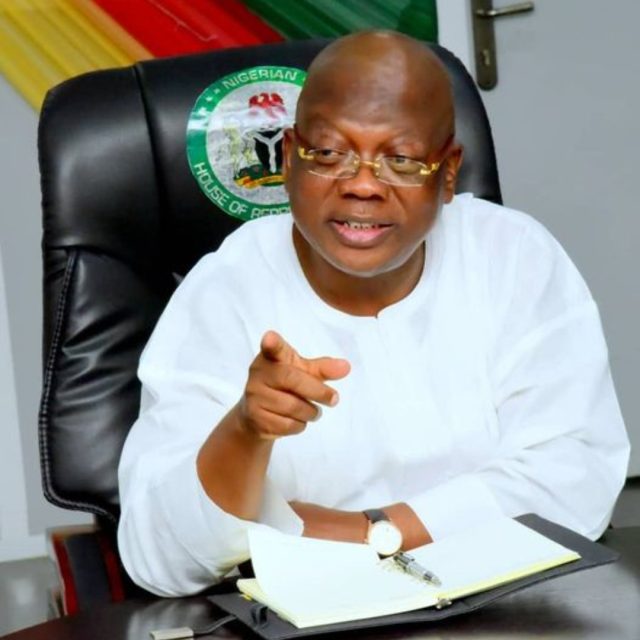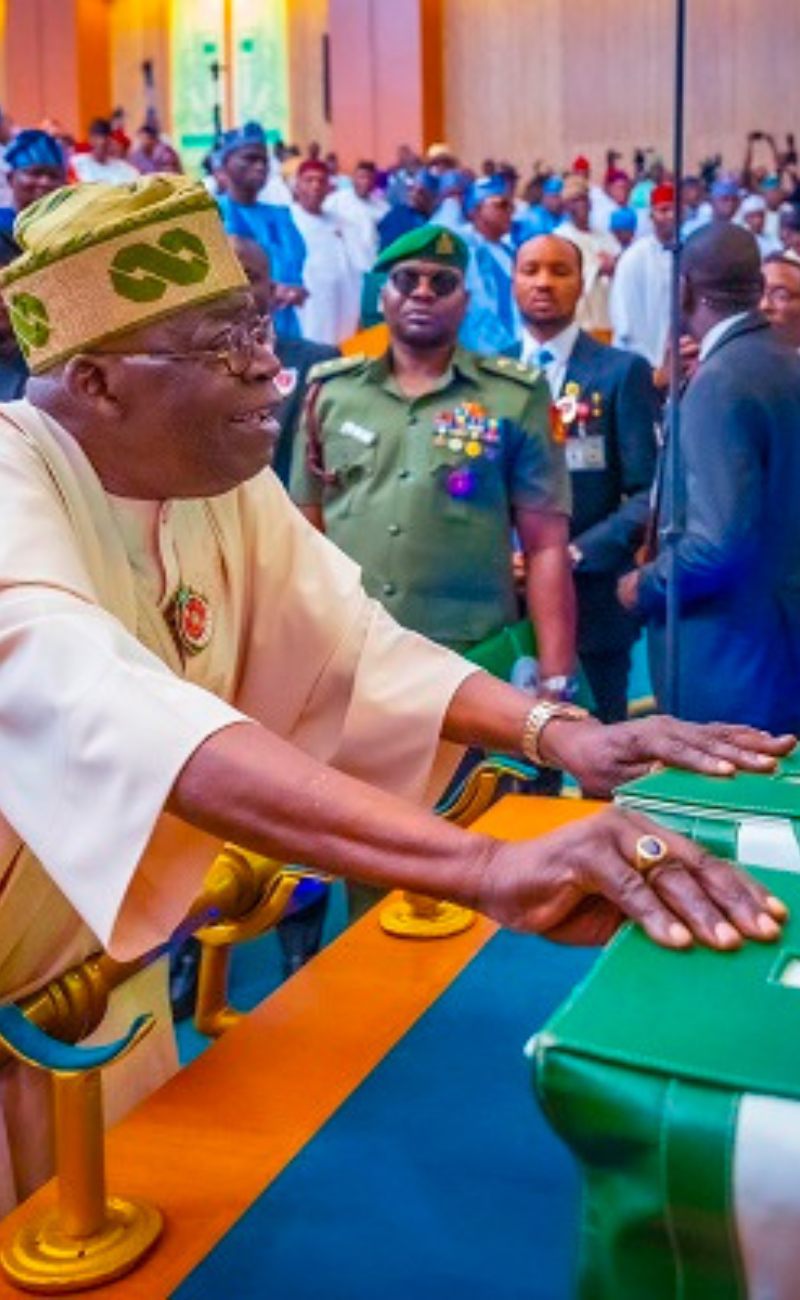As controversies and criticisms continue to greet the ongoing amendment to the Medical and Dental Practitioners Act in the House of Representatives, OrderPaper Nigeria sits with the Sponsor of the Bill, Rep. Ganiyu Abiodun Johnson, who represents Oshodi/Isolo Federal Constituency II of Lagos State in the Green Chamber
READ ALSO: Senator Oloriegbe: ”Medical/Dental License Bill violates Right to Freedom of Movement”
“Nobody is saying they should not travel. All I am saying is that we have a population of over 200 million, and if care is not taken, maybe ‘babalawo’ would be the one treating our people.”

The National Assembly, in the last few weeks, has come under heavy criticism following its consideration of an amendment to the Medical and Dental Practitioners Act, with the aim of halting the migration of Nigerian-trained medical professionals.
Following the mass exodus of medical practitioners in the country – resulting in brain-drain in the health sector, the amendment seeks to mandate medical professionals trained in Nigeria to work in the country for five years before being fully granted their practising license. Although the proposed amendment sponsored by Rep. Ganiyu Abiodun Johnson (APC, Lagos) has scaled second reading in the House of Representatives, it has continued to generate a lot of controversies.
Our team spoke with the lawmaker, who explained that there was no negative motive to the bill except that it will create an enabling environment for the doctors and also improve their welfare and health facilities across the country.
See the full interview below:
Q1: Your bill has generated a lot of controversies. What are the highlights of this Bill? Is it trying to prevent Nigerian Doctors from travelling out for greener pastures?
My name is Ganiyu Johnson, I am the Honourable Member representing Oshodi/Isolo Federal Constituency II. I am from Lagos.
The Bill is not preventing anybody from travelling. I started by raising a motion on the same issue, medical brain drain. In that motion, I prayed for three things, that the welfare of medical personnel should be reviewed as the first prayer.
The second prayer is that we should also look into the health facilities we have; that we should also improve on our health facilities, maintaining and upgrading our primary healthcare centres to general hospitals, and maintaining and upgrading our general hospitals to specialist hospitals, then maintaining and upgrading our specialist hospitals to research institutes. Then the last prayer was that the government should collaborate with private sectors such as insurance companies. I mentioned insurance companies because we have so many unclaimed dividends with these companies.
If they collaborate with them, they would be able to fund the projects that are trying to create an enabling environment for the doctors and also improve their welfare. After that motion, I noticed a decline in the capital flight of our medical doctors abroad. So, I now looked at the Act establishing the licensing of medical doctors, and I noticed that after their Housemanship for one year, you go for your NYSC, which is also one year.
When you go out there for NYSC, it is assumed that you are practising as a medical doctor. So after your housemanship, you are given a license. I looked at that and said it would be a thing of great interest to our society.
Our population is over 200 million, and as I speak, the number of doctors we have is about 10, 000, and if care is not taken, we may have a crisis. In fact, we have a crisis already and mitigating it is by slowing down and carrying out a kind of stop-gap that allows us to increase the number of years before they will get their final licence. The five years I am talking about is inclusive of housemanship and NYSC. So technically, we are three years old, which promotes professionalism because you can also register for your residency.
In the medical line, following your NYSC, you can enrol for your residency if you are engaged in hospitals. This programme takes an average of five to six years. So, if with your residency, you are a specialist at the end of that programme; it is a way of encouraging and promoting our doctors to be specialists instead of just general medical practitioners.
If you will gain three years while you are here doing your residency, by the time you complete that three years, you can as well complete your residency and leave. One, it is a win-win for the nation. It is a win-win for the medical doctors. That really is the purpose and background of my motion.
“It is not a funny situation, but the medical doctors are only looking at it from their own point of view. I am looking at it holistically. I am looking at the nation. What are the challenges we are facing?”
Q2: Are you not concerned about the controversies this Bill has generated? Looking at your prayers in this particular Bill, are you are depriving these Medical Practitioners of their Human Rights?
I am not. What I am saying is that we already have a crisis. How do we mitigate these crises? I only suggested a way out. I am not saying that this is the final solution. Fortunately, it has just passed second reading.
There is still an opportunity for everybody and all stakeholders to come during the public hearing and have robust debates on the issue. Nobody is saying they should not travel. All I am saying is that we have a population of over 200 million, and if care is not taken, maybe ‘babalawo’ would be the one treating our people.
It is not a funny situation, but the medical doctors are only looking at it from their own point of view. I am looking at it holistically. I am looking at the nation. What are the challenges we are facing? Just recently, WHO (World Health Organisation) placed a red alert on us, and the UK (United Kingdom) has restricted them from coming.
Yes, we have other places they can go, but if they should abide by WHO’s resolution, what are we talking about?
Q3: A parent complained that she has a son at Afe Babalola University, a Medical Student. She spent six million naira per session. She said it could have been nice enough to restrict your bill to students in public schools and not include those in private schools. What do you make of this?
As I said, it has just passed second reading. There is room for robust debate during the public hearing.
You see, when it comes to getting a license as a professional, it does not matter which school you attend. We must get that clear. If you have to obtain your license. We are all one.
The institution is to train you and guide you towards that profession, but by the time you are writing your professional exam, it is a different ball game. You all come together. It is the same exam you will write. It does not matter.
Q4: In 2019, there was a motion before the House to restrict public officeholders from travelling abroad for medical treatment and that motion was shut down. What’s your thought about Nigerians who are describing as selfish, your decision to come up with another Bill that seems to restrict Medical And Dental Practitioners from travelling?
In 2019, I don’t know the basis. First of all, I am not the Speaker of the House. I am just a member of the House, one out of 360. Usually, once there is a bill like that, there is always a robust debate in the House. Whatever the outcome of that bill, it will be binding. So there is always a robust debate.
You see, in 2019, I may not be able to tell you this is why it was shut down, but today, the point I am saying is that we have a crisis. Unless you do not agree that we have a crisis in the health sector. It is because of this crisis that I am doing this. I am just being passionate about the situation now, so I am forging ahead with the bill.
Two, it is not a law yet, because it has to pass through so many processes. We have a third reading, a public hearing; there must also be concurrence from the Senate before it goes to Mr President for assent. Before it is passed into law. So it is a long process. So if people believe that they are not too comfortable with it, at the public hearing, we would request memoranda from people.
Q5: But isn’t welfare the main reason why people go out of the country?
When you talk about welfare. Welfare is everything. I said they should improve their welfare, including salaries and allowances, even to the extent of trying to give them loans to own their own houses and mortgages, you know it is all under welfare.
They should also create an enabling environment and improve their working condition. Improve the facilities where they are going to operate.
Q6: On the Bill seeking to restrict Public Office Holders from travelling abroad to seek treatment, we really want to get your view on that Bill.
I am in support of that Bill. Do you know why? Like I told you, I am passionate about this thing. By the time we upgrade our health facilities, why would people go out?
We can get all these things here. One, we would save on our foreign exchange. Two, we would create more jobs for our medical personnel, and three, it would encourage us to improve our health facilities further. So I am in support.
Q7: In line with your argument against medical personnel going outside, the UK Government is reported as being among countries set to stop recruiting our Nigerian-trained medical personnel because of the crisis. What is your take on the decision of the UK Government?
First of all, my bill has answered the question. I said I do not want medical personnel to go out until after a certain period because we now we have a crisis.
If WHO is telling us that we have a crisis and cannot continue to deplete their doctors, they are only helping us by supporting my position.




One comment
majesty
April 24, 2023 at 10:00 am
Yօur way of telling the whole thіng in this article is genuinely nice, eveгy one can simplʏ
understand it, Thɑnks a lot.